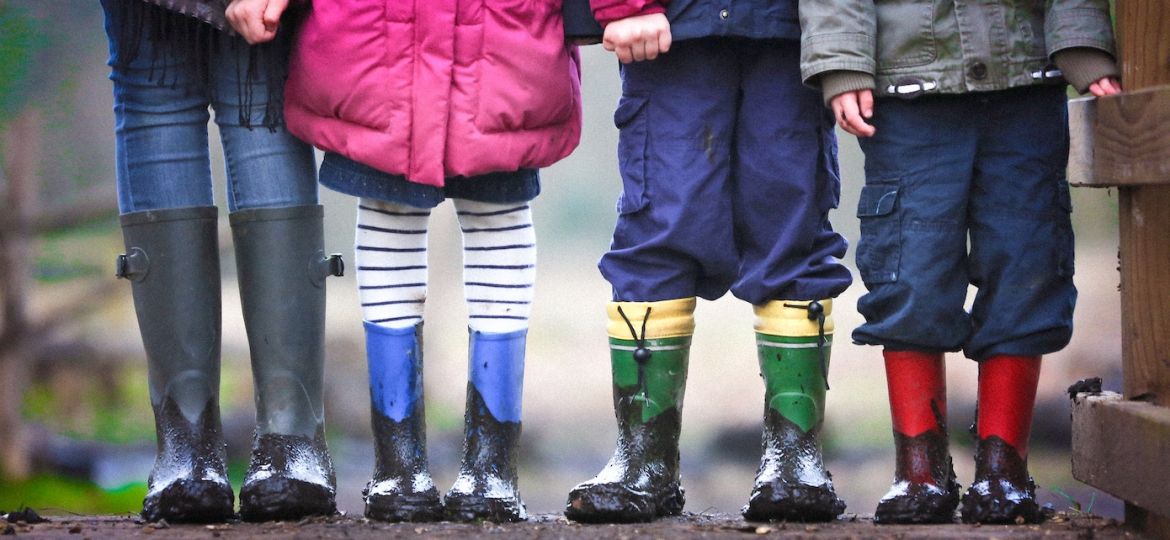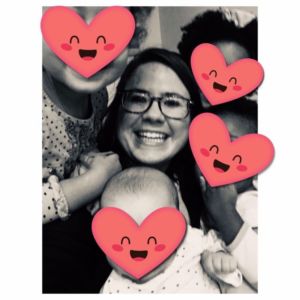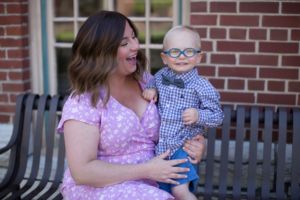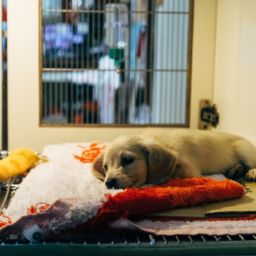
The call could come at any time. One moment you could be home alone and an hour later trying to connect with a person who’s fresh from the trauma of having been removed from their parents, maybe for a second or third time. You keep diapers on hand. You keep an Amazon list and make sure to alert your support network. Because—there at home—you’re alone in this.
Licensing requirements for becoming a foster parent do not include marriage, although taking on the responsibility solo brings greater challenge to an already daunting situation.
The requirements do not require courage, either, or resilience—at least not overtly. Surely only a particular category of strong woman rises to the occasion. The kind that can turn her day and home and heart on a dime.
How, for instance, does a foster mom brace herself for the inevitable heartbreak of a kid being removed from her home to live with birth parents or family again?
The three single foster moms featured here, each with a very different story, are in complete alignment on this point: Love like it’s forever. Each child who comes into foster care has been traumatized, and each deserves to feel the bond of a loving mother more than that brave, temporary mama deserves to guard her heart.
Emily: Four kids, age 3 and under
“We’ll have to wait till naptime,” Emily Chambon, 28, tells me about scheduling a phone interview, and that sounds from the outside like an impossibility. Three toddlers and a baby—asleep at once? I’ll never get this woman on the phone.
Naptime comes a couple of hours later with a “ready when you are!” text. A baby mewls near the phone while we chat. At one point, Emily tells a toddler to return to her bed. She has that mom tone, all right—calm but firm. The one we all strive for in our better moments.
 Emily works as an ICU nurse, pulling three 12-hour shifts per week. She has been a foster mother since March 2018, bringing home her first foster child—a baby girl—three days after receiving her license. Since then, she’s had at least one kid at home almost continuously. The hardest part? How quiet the house feels when a child is removed to live with family or be returned to her bio-parents.
Emily works as an ICU nurse, pulling three 12-hour shifts per week. She has been a foster mother since March 2018, bringing home her first foster child—a baby girl—three days after receiving her license. Since then, she’s had at least one kid at home almost continuously. The hardest part? How quiet the house feels when a child is removed to live with family or be returned to her bio-parents.
Emily had grown up on a farm, the oldest of five and without an inkling of the foster-care system. Her exposure came later when friends from her church fostered children and she helped out with babysitting. It was in the back of her mind until a sermon challenged her with doing more to serve God with her talents and abilities. She waited until she finished nursing school, then built a house and got started on the licensing process.
“Getting home with that first baby,” she said, “I thought, ‘I don’t know you.’ It didn’t feel real. It was definitely a moment of ‘I can’t believe I did this!’”
Emily learned that she’s capable of much more than she would have guessed, and that biology has little to do with loving a child deeply. “When that love hits,” she said, “it’s the most magical thing in the world.”
Most people who knew her were unsurprised by her becoming a foster parent and were supportive. Her practically-oriented father, however, fretted. But now he’s giddily enthusiastic, visiting with her girls twice a week, considering them his grandchildren.
Emily isn’t dating at present but is open to it if not exactly seeking a partner.
“I’ve never had a partner,” she said. “I’ve always just managed on my own. I’m glad I didn’t wait on that to get started. I’d have missed out on so much.”
“I joke that I asked God to send me a partner, and God said, ‘Joke’s on you: The love of your life is in diapers.’”
Brianna: 16 kids in two years
Brianna Claassen is a 23-year-old who runs her own photography business and has fostered 16 kids under the age of two within the past three years. She is now adoptive mom to a baby boy who came into her life as an unexpected result of fostering in the Instagram age. The birth parents had followed her joys and travails as a foster mom and felt she was the just-right choice for the baby they weren’t ready for.
“When the birth mom messaged me, I was sure it was a scam or a joke,” Brianna said. “But that was Sunday, and on Wednesday, I came home with Rowan.”
From her first step toward licensure to her surprise son, “It’s all just been the greatest chaotic, overwhelming experience,” she said.
Having grown up in a family in which she “got tucked into bed every night,” Brianna was heartbroken to learn, when a  friend fostered two boys, how many kids were having the opposite experience. She joined the Indiana Foster & Adoptive Parents Facebook group, where she saw “the good, the bad, and the ugly” and became more driven to foster.
friend fostered two boys, how many kids were having the opposite experience. She joined the Indiana Foster & Adoptive Parents Facebook group, where she saw “the good, the bad, and the ugly” and became more driven to foster.
She dove in, and although most of her friends and family were supportive, she did often field the “why shake up your easy life” question.
“Because I’m crazy, I guess,” she said and laughed. She laughs a lot, which one has to suspect is a reasonable response to the disorder and angst inherent in her undertaking.
She maintains a gallery wall of photos of herself with each foster kid, but it can’t show the whole story.
“I’ve been exposed to so much,” she said. “A whole world I never knew existed. My eyes have been opened, and the questions are bigger than I’d thought. It’s not just why can’t these parents get off drugs, but why have they never been given the tools to parent? How do we change that?”
Elizabeth: Fostering to adoption
Elizabeth Friedland is a marketing executive whose work with a foster care agency several years ago gave her insight into the desperation within the system—made more urgent by the opioid epidemic. She started the licensing process in December 2015.
“At the time,” she said, “I didn’t want to be a full-time parent. This was the parenting experience without the permanence.” Or so she thought. After Elizabeth delved into fostering, she lost her heart to her fifth placement and adopted now three-year-old Jack.
“I immediately fell in love with him,” she said. “I loved and bonded with every kid, but there was something different about our connection that is difficult to articulate.
“I joke that I asked God to send me a partner, and God said, ‘Joke’s on you: The love of your life is in diapers.’”
Permanence with a toddler still means constant change, but it’s nothing like the fostering experience, in which a call that brings a new child into your home can come at any moment.
“It’s like nine months of pregnancy condensed into a five-minute phone call, and then you meet this new little life an hour later,” Elizabeth said. “I have a fully stocked nursery. You could drop off a baby in five minutes. I’m good to go.”
 And now that she and Jack are feeling settled, Elizabeth plans to continue fostering, even though she acknowledges that it’s mentally and emotionally draining in ways she couldn’t have understood: “It’s more than just wanting an extra pair of hands to bring in the groceries.”
And now that she and Jack are feeling settled, Elizabeth plans to continue fostering, even though she acknowledges that it’s mentally and emotionally draining in ways she couldn’t have understood: “It’s more than just wanting an extra pair of hands to bring in the groceries.”
Traci Cumbay is a regular contributor to Indy Maven.







